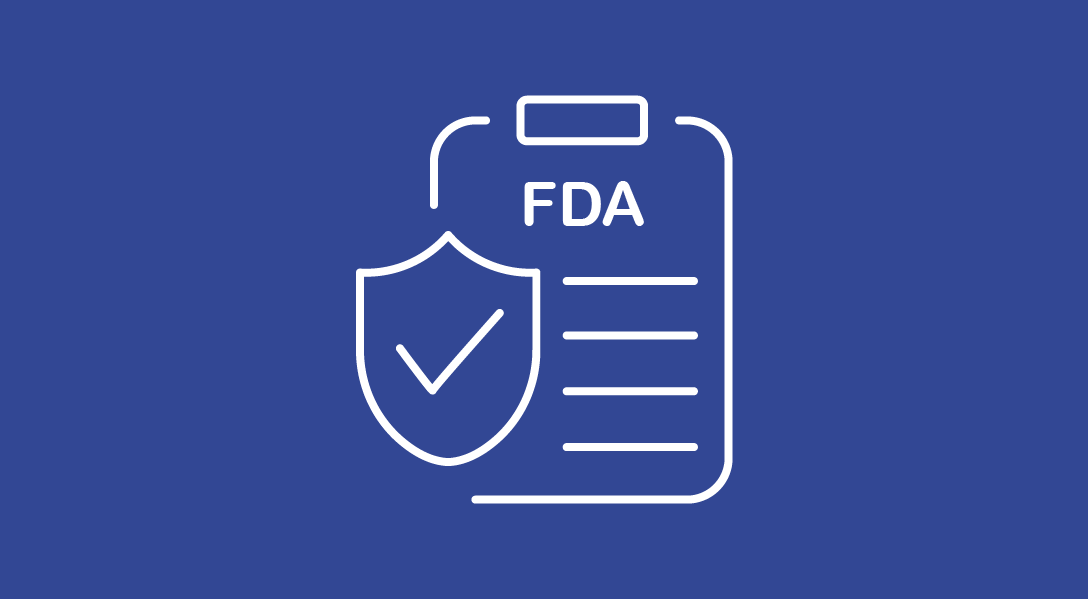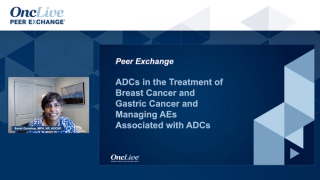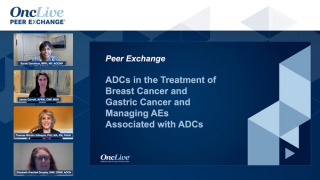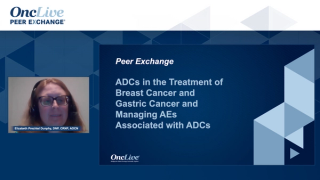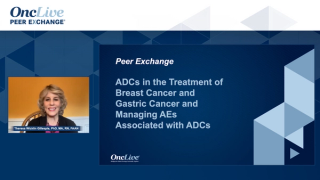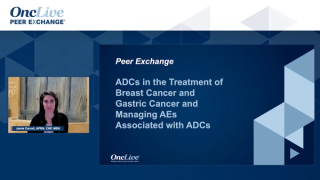
Gastrointestinal Cancer
Latest News
Video Series

Latest Videos
Podcasts
More News

Frontline lenvatinib, pembrolizumab, and chemotherapy did not lead to increased overall survival vs chemoimmunotherapy in patients with advanced ESCC.
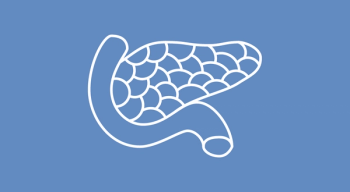
Adding zabilugene almadenorepvec to SOC chemotherapy and nab-paclitaxel was safe and effective in patients with metastatic pancreatic ductal adenocarcinoma.

Ponsegromab increased body weight in patients with cancer-associated cachexia, yielding greater improvement in those who received ponsegromab previously.


Subcutaneous pembrolizumab has been approved across all indications, cutting chair and administration times with a median injection time of 2 minutes.

In a phase 1 study, ELI-002 2P improved relapse-free survival in pancreatic and colorectal cancer, with stronger benefit in patients with T-cell responses.

A care model led by advanced practice nurses was feasible in providing supportive care and linking providers through post-trial care transitions.

The addition of retifanlimab to chemotherapy increased progression-free survival in patients with advanced squamous cell carcinoma of the anal canal.

Oncology nurses can assess patients’ risk factors and advocate for preventive strategies that protect kidney function during cisplatin therapy.
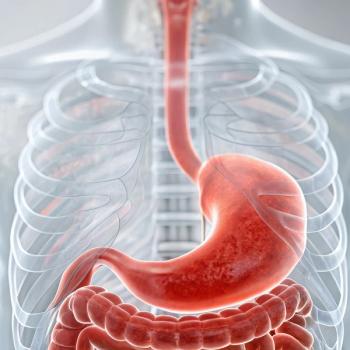
Further data could back zanidatamab as advanced treatment for HER2-positive advanced gastroesophageal adenocarcinoma.
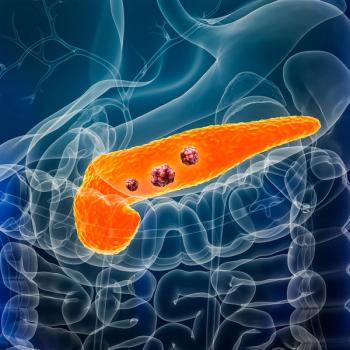
The novel MEK inhibitor atebimetinib plus chemotherapy showed early signs of survival benefit in first-line treatment of patients with pancreatic cancer.
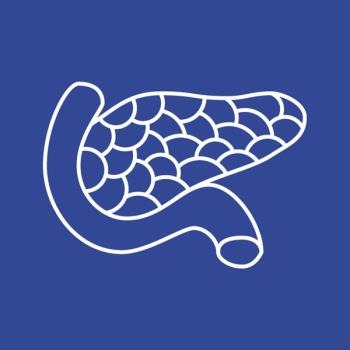
The novel antibody-drug conjugate EBC-129 has been fast tracked by the FDA for approval in pancreatic ductal adenocarcinoma.

Adding panitumumab to neoadjuvant FOLFOX cut recurrence risk and improved survival in locally advanced, RAS/BRAF wild-type colon cancer.

Retifanlimab has received approval for the frontline treatment of advanced anal cancer from the FDA.
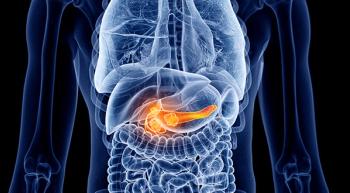
Assessing the signs and symptoms of chemotherapy-induced diarrhea and providing accurate and timely patient education may reduce complications and optimize survival outcomes.

The FDA approved cabozantinib for use in patients with previously treated unresectable, locally advanced or metastatic, well-differentiated epNETs or pNETs.

Maintenance treatment with OSE2101 plus FOLFIRI following induction chemotherapy with FOLFIRINOX yielded promising results in patients with advanced/metastatic PDAC.

T-DXd delivered an OS benefit for patients with unresectable or metastatic HER2-positive gastric and GEJ adenocarcinoma following trastuzumab-based treatment.

The FDA approved tislelizumab-jsgr (Tevimbra) with platinum chemotherapy as a first-line treatment for adults with PD-L1-positive, unresectable or metastatic esophageal squamous cell carcinoma.

Perioperative chemotherapy improved survival compared with preoperative chemoradiotherapy in managing esophageal cancer.

The NCCN updated its guidelines to clarify the role of ctDNA as a biomarker for recurrence risk in colon and rectal cancer and for disease monitoring in Merkel cell carcinoma.

Envafolimab plus suvemcitug and FOLFIRI showed early efficacy and manageable safety in MSS/pMMR colorectal cancer, according to phase 2 trial data.

Thermal ablation was associated with no treatment-related deaths and fewer AEs compared to surgical resection in patients with CRC liver metastases.

In BRAF V600E-mutant metastatic colorectal cancer, encorafenib plus cetuximab and mFOLFOX6 improved PFS and OS compared with chemotherapy.

Sintilimab with neoadjuvant chemoradiotherapy enhanced pCR rates in resectable, locally advanced esophageal squamous cell carcinoma.



